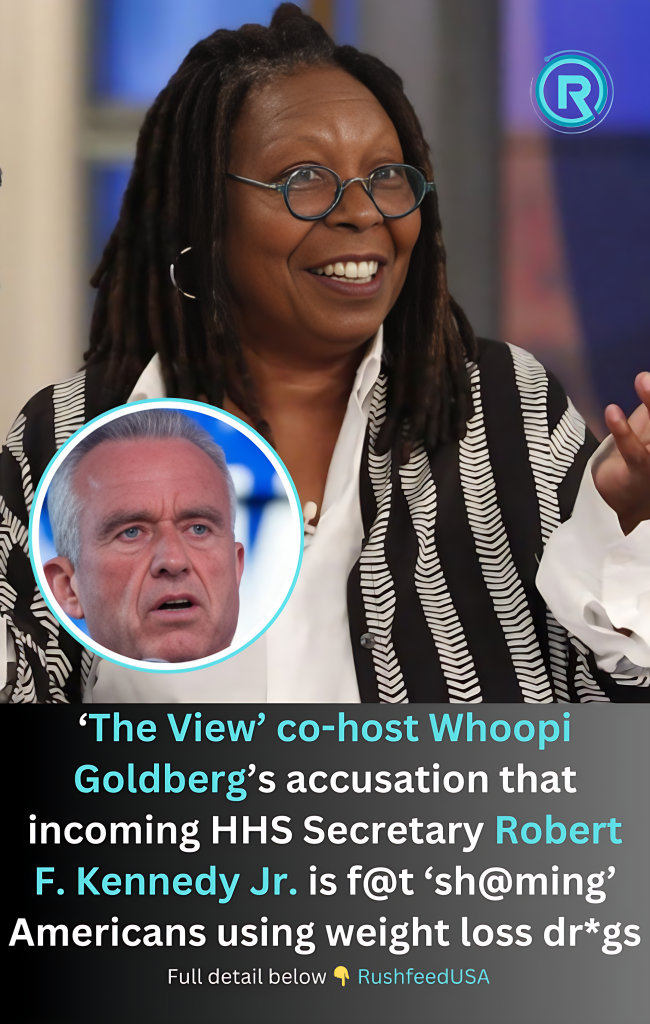
Robert F. Kennedy Jr. (RFK Jr.) is no stranger to controversy, but his recent remarks on body image and weight loss have sparked a heated debate that has catapulted him into the center of a public firestorm. Accused of fat-shaming his father, Robert F. Kennedy Sr., RFK Jr. was cleared of all charges in a federal court last year. Yet, the accusations and the broader conversation around them have touched a nerve in an era where body positivity and mental health awareness are more prominent than ever.
At the heart of the controversy lies a debate about lifestyle choices, obesity, and the line between personal responsibility and public perception. RFK Jr., an outspoken advocate for healthy living, has consistently advocated for the benefits of exercise, proper nutrition, and mental wellness. His comments on weight loss, however, have led some to accuse him of perpetuating harmful stereotypes about those struggling with their weight. In a recent public exchange with TV host Whoopi Goldberg, RFK Jr. expressed his belief that much of the obesity crisis stems from lifestyle factors, including diet and exercise.
While many might agree with his sentiment that personal choices play a significant role in one’s health, the way these issues are discussed can often feel alienating to those who are already dealing with the mental and emotional challenges of obesity. Critics argue that language like “fat-shaming” can deepen feelings of shame and self-doubt, especially for individuals who are already struggling with their weight or related mental health issues.
RFK Jr., for his part, has expressed regret if his comments were perceived as insensitive. He clarified that his intention was never to shame anyone but rather to encourage healthier choices in a society that is facing an increasing number of health-related issues tied to obesity. Yet, his comments ignited further discussion about how we talk about weight, health, and the role of public figures in shaping these conversations.
In the aftermath of the controversy, the conversation shifted to the broader issue of obesity and its ties to mental health. Experts, including Dr. David Harris, pointed out that weight loss isn’t just about the number on a scale; it’s about addressing underlying mental health issues such as depression, anxiety, and even addiction. Many people who are overweight or obese struggle with these conditions, which can make it harder to adopt healthy lifestyle changes. It’s a vicious cycle that can be difficult to break without proper support and treatment.
In the face of these complexities, some have pointed to the growing availability and acceptance of weight loss drugs as a potential solution. While RFK Jr. has been a strong advocate for healthy eating and exercise, there’s no denying that medications and interventions can play a role in addressing obesity for those who need them. The challenge, experts argue, is to strike a balance between addressing the physical aspects of obesity and ensuring that the mental health aspects are not overlooked.
Adding another layer to the debate, a recent poll revealed that 48% of Americans would support RFK Jr. as the next Secretary of Health and Human Services, which is a testament to his influence in the health and wellness space. His comments about weight loss, mental health, and public health may have sparked controversy, but they’ve also opened the door for a larger conversation about how we can tackle obesity in a more compassionate, holistic way.
While the debate continues to rage on, it’s clear that the conversation about body image, obesity, and personal responsibility is far from over. As the public grapples with these issues, RFK Jr. finds himself at the crossroads of public health and personal accountability.
The question remains: will his influence in the health space continue to grow, or will the backlash over his remarks overshadow his contributions to the conversation? Only time will tell, but one thing is certain: this controversy has sparked a critical conversation that is long overdue.

